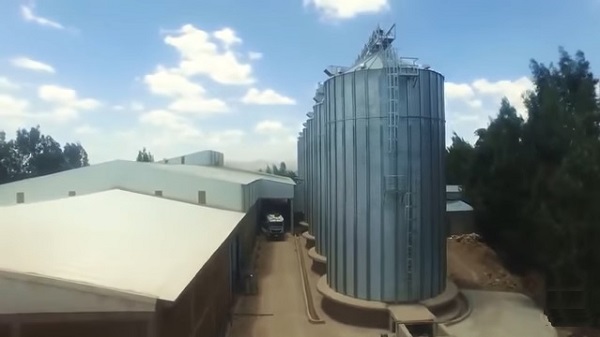
The agro parks will create demand for agricultural products, which will stimulate and push the agriculture sector to use various mechanisms such as irrigation and research to the maximum and increase productivity to meet demand
By Robel Yohannes (The Ethiopian Herald)
While the fullest potential of Ethiopia’s food and beverage sub-sector has not been utilized so far, Integrated Agro Industrial Parks (IAIPs) are tipped to transform the sub-sector, and eventually putting in motion agricultural productivity increment.
The food and beverage sub-sector, and by extension the agro industry, are expected to provide the link between the agriculture and industry sectors and present an opportunity for Ethiopia to move towards light industrialization.
Despite the country’s huge agro-ecological potential, expansion of industrial parks and some growth in the food and beverage sector, the industry in particular and the whole agro industry are not still at the desired level, according to Habtamu Taye, Director of Oil Seeds Processing with Food, Beverage and Pharmaceutical Industry Development Institute (FBPIDI). “We still import foods and beverages from overseas. Foods like Pasta, Macaroni, and cooking oil that are filling our supermarkets’ stands are imported.”
He points out that various bottlenecks, issues of (agricultural) input being the main one, have hindered the potential growth of the sector.
As the sector is interlinked with the agriculture sector, 50 to 60 percent of the works of any agro-processing should end in the agriculture sector. “However, one of the main issues facing the sector has to do with the agriculture sector producing ample input for the industry sector. As things stand right now, our food and agro industry face input (raw material) shortages,” he says.
To address this, works need to be exerted in increasing the productivity of the agriculture sector, he suggests, further mentioning the need for integrated agro-processing industry parks as pivotal solution.
Indeed, the government has identified IAIPs as one (pivotal) option to transform the Ethiopian agriculture production from being fragmented and supply-driven to demand-led and quality oriented production whilst helping boost productivity in the process.
Dandena Chemeda, Director of Agro-Industry Development Support at Ministry of Industry, says the Agro parks are expected to encourage and incentivize the agriculture sector, thereby increase productivity.
The agro-parks will create demand for agricultural products, which will stimulate and push the agriculture sector to use various mechanisms such as irrigation and research to the maximum and increase productivity to meet the demand, he opines.
The Director also notes that it will also motivate farmers to meet the growing demand for agricultural product that comes with the park, and make profit from it. “This will up their use of fertilizer, best seed and other tools.”
17 agro potential areas (agro industry growth corridors) have been identified across the country. Out of the 17 agro parks, four have been selected for pilot development in four regions – Baeker Park (in Tigray region), Bulbula Park (in Oromia region, Bure Park (in Amhara region) and Yirgalem (in SSNP region).
As for Dandena, the agro parks differ from industrial parks as they focus more on agriculture products, and aim to utilize the abundant agriculture potential of the country.
While infrastructural works have already started in the pilot agro parks, it is the investors themselves that will build the working shades within the park, unlike in industrial parks.
There is abundant agriculture potential like livestock and fish, sesame, spices and honey in the identified economic corridors, and each region have already setup Industrial Corporations with boards to oversee the agro parks.
The Director believes that with capable implementation, the agro park facilities bring considerable potential to increase agricultural productivity, and drive up commercial investment in the agribusiness.
There are many investors that have already signed up, with Yirgalem Industrial Park already attracting interest. “We want local investors and cooperatives that can be successful to enter into the parks,” he adds.
The agro parks are also tipped to play a role in increasing productivity and agricultural input by helping shorten the industry’s long value chain.
Amare Seyoum, Director of Technology Transfer and Business Development at the Institute argues that the parks will help farmers to provide their products with competitive price, which in turn will increase productivity and agricultural input for the food and beverage sector.
As to him, the parks will shorten the industry’s long value chain, which means reducing cost and middlemen, and helping the farmers become more competitive in terms of price.
He explains how the agro parks will actually help shorten the value chain. Around these agro parks, six to eight rural transformation centers will be setup to serve as raw material aggregation points in the catchment areas of the park, which is 100 in km radius.
“And the working theory is that a park will collect agriculture product within 100 radius while the distance between the centers and the agro park will be 40km on average.”
Amare further hammers his point indicating that shortening the value chain means farmers will meet the industry directly, and are saved from the price on their product getting higher and higher as it passes through the long value chain and middlemen.
“What we should understand now is the agriculture sector is not feeding the industry sector in the expected manner, as enough input is not provided as per the needed industry quality to the (food, beverage) sector.”
The plan is to do some strong works on the agriculture sector. It will need integrated support in order to be able to produce quality input at the needed level, which is where the agro parks play a pivotal role, he notes.
The country is working to move the economy from agriculture led to an industry one, and when these agro parks becomes operational, they will be in a position to play an important role in facilitating the transition given their strategic standing and background, he concludes.
Source: The Ethiopian Herald
